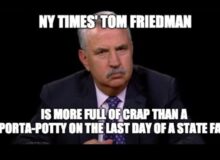According to recent press reports, Attorney General Jeff Sessions has ordered the Justice Department to review fourteen Consent Decrees from the Obama Justice Department to certain local police departments.
The Obama Administration took full advantage of incidents such as Ferguson, Missouri; Baltimore, Maryland, and the Black Lives Matter riots, to forcibly handcuff the policies of many police departments nationwide. President Obama essentially extorted cities and towns by saying in essence; “If you want to continue getting federal money, you have to sign and abide by the DOJ’s consent decree.”
The purpose of the Obama DOJ Consent Decrees was to tag police departments as being racist to minority residents and to restrict policing in minority neighborhoods, where proportionately, a majority of crimes occur. In other words, Obama and his DOJ ordered police departments to back-off in minority neighborhoods or risk losing federal funds to their departments.
In a memo released Monday April 2, 2017, Sessions said the previous DOJ Consent Decree agreements, between the DOJ’s civil rights division and local police departments will be subject to review by Trump’s DOJ to determine whether or not they are justified in their application and practice.
Since 2009, The Obama Administration and the Justice Department have investigated 25 local law enforcement agencies and issued 14 Consent Decrees to law enforcement agencies. Those Decrees also had added or other amended agreements as well. Agreements such as the Baltimore agreement called for police to change training procedures, and how to resolve conflicts without the use of force. Baltimore mayor Catherine E. Pugh said she opposes any such review by Trump’s DOJ but, Gene Ryan, president of the Fraternal Order of Police, the union that represents police officers, said he welcomes the review.
So, what effect did the Obama DOJ policies, along with other added state and local policies, have in local communities? Let’s look at California, where I live.
In a related story from the Los Angeles Times, comes the news that in California, police officers are making fewer arrests. This sounds all well and good but, as the article points out, crime is persistently on the rise. Statewide the police recorded the lowest number of arrests in 50 years. In 2006 there were 1.5 million arrests statewide and in 2015 there were 1.1 million arrests. Further, police department budget cuts have reduced the capability to monitor and track gang activities which are epidemic in Los Angeles, and in other cities throughout the nation.
From 2010 to 2015 felony arrests were down 29% and misdemeanor arrest were down 32%, in Los Angeles. Even citations and the number of ‘field interview cards’ were down dramatically. As LA City Councilman Mike Bonin noted, “If crime was dramatically down, I wouldn’t have a problem with arrests going down. But, if crime is going up, I want to see arrests going up.”
But, LAPD Chief Charlie Beck disagrees. He says, he wants to focus on “how safe their community is,” not in making arrests. Beck says, although arrests are an important part of policing, modern policing includes an array of strategies and a different philosophy from previous decades.
Many police officers, however, say an arrest is often not worth the time it takes to process a suspect. In 2016 violent crimes increased in Los Angeles for the third year in a row. Violent crime was up 38% over the previous two years and property crime was up, as well as auto thefts.
In Los Angeles, and elsewhere in California, arrests have sharply declined as crime, especially serious crime, is on the rise. LAPD officer and member of the police union’s board of directors, Robert Harris, said, “Suddenly, you feel like you can’t do any police work, because every opportunity that you have might turn into the next big media case.” And as George Hofstetter, a Pico Rivera motorcycle deputy and former president of the L.A. County sheriff’s deputies, stated it; “Not to make fun of it, but a lot of guys are like, ‘look, I’m just going to act like a fireman.’ I’m going to handle my calls for service and the things that I have to do…But, going out there and making traffic stops and contacting persons who may be up to something nefarious? I’m not going to do that anymore.”
Nationwide, criticism of police procedures has been causing lawmakers and police departments to review and renew certain policies and procedures. The top-down dogmatic doctrines being passed down by the federal government to cities and townships are also forcing city councils and police departments to restructure policing strategies and how to refocus these new procedures most effectively. This is having an effect on many police officers and affecting how they perform their day to day policing activities.
The overall duty and purpose of law enforcement is to keep communities safe for law abiding citizens. Generally speaking, a social order that promotes the breakdown of law and order cannot expect to keep the peace for its law-abiding population. The results of a community’s law enforcement should ultimately be the restitution and restoration of its social order. Communities have the responsibility to see that justice is done, and done fairly, whether one is rich, middle-class, or poor. A social-order that tolerates crimes against itself and against its law-abiding citizenry is a community in decline. Justice is of course not perfect because man is not perfect. Reviews and reforms that bring improvements are healthy for communities and should produce positive results, otherwise they should be scrutinized and changed.
***
References:
- By Sari Horwitz, Mark Berman and Wesley Lowery By Sari Horwitz, Mark Berman and Wesley Lowery, April 3, 2017
- Los Angeles Times: Arrests Across State Plunge, Fueling Alarm; Sunday April 2, 2017, by James Queally, Kate Mather, and Cindy Chang.




















Join the conversation!
We have no tolerance for comments containing violence, racism, vulgarity, profanity, all caps, or discourteous behavior. Thank you for partnering with us to maintain a courteous and useful public environment where we can engage in reasonable discourse.